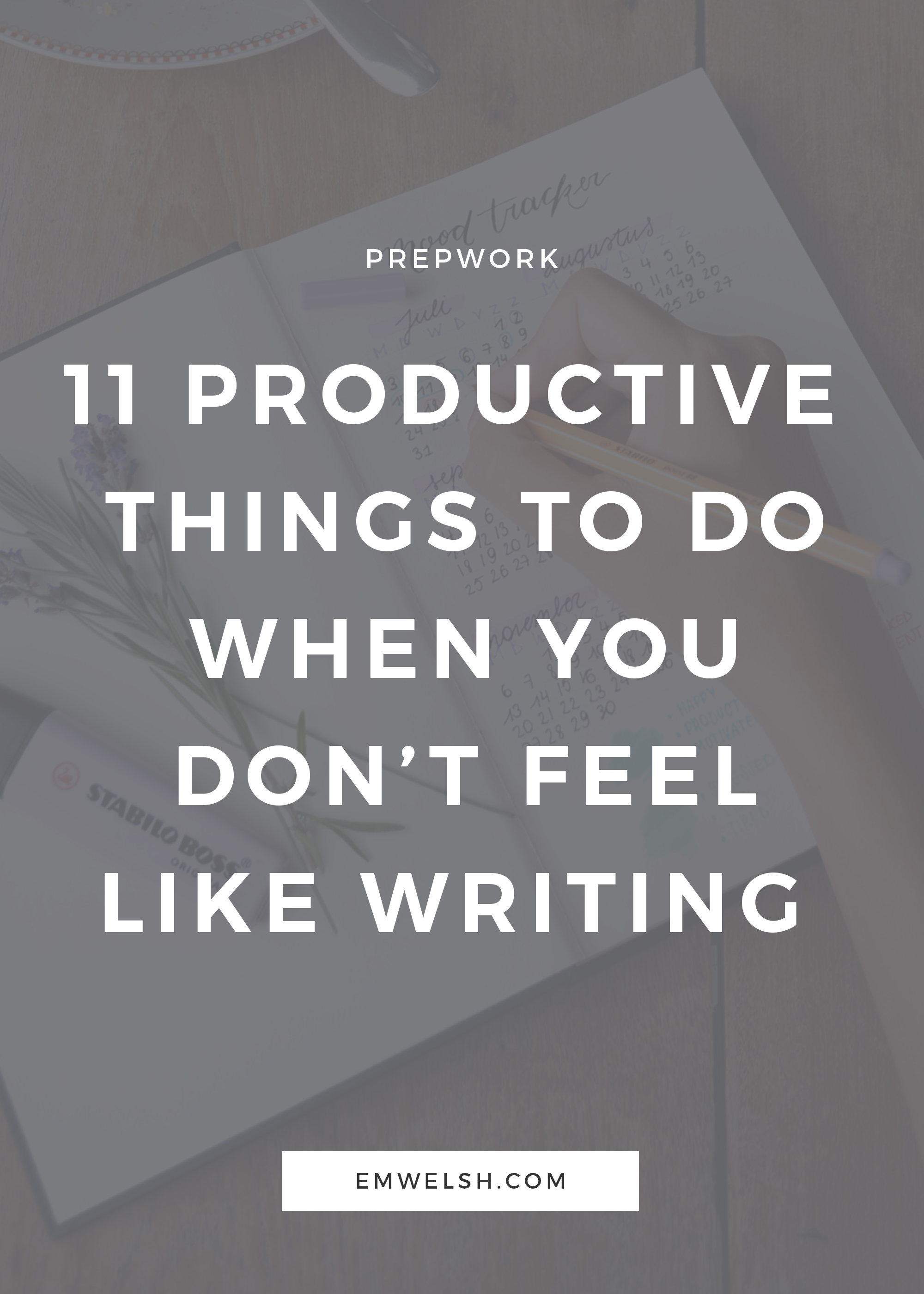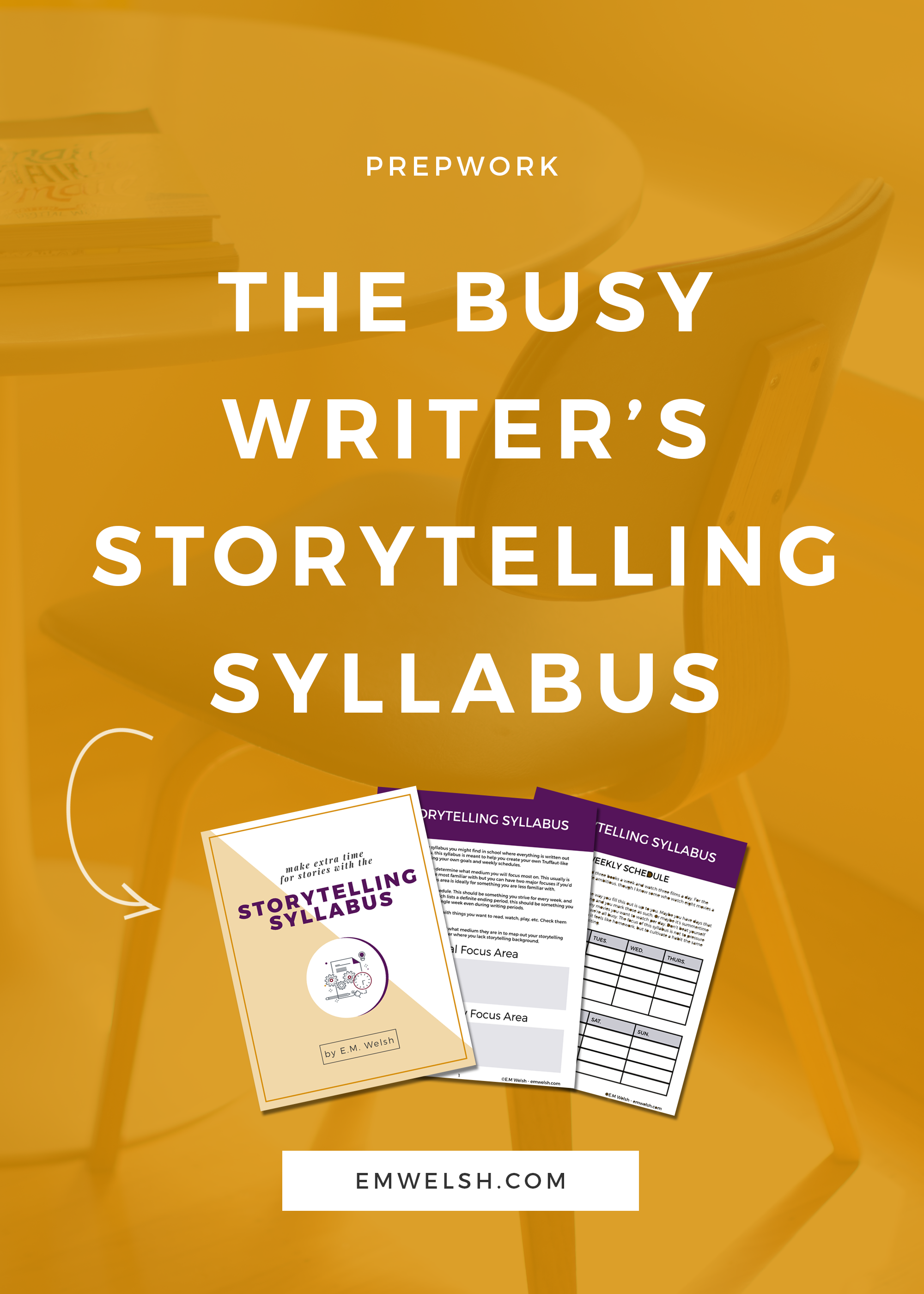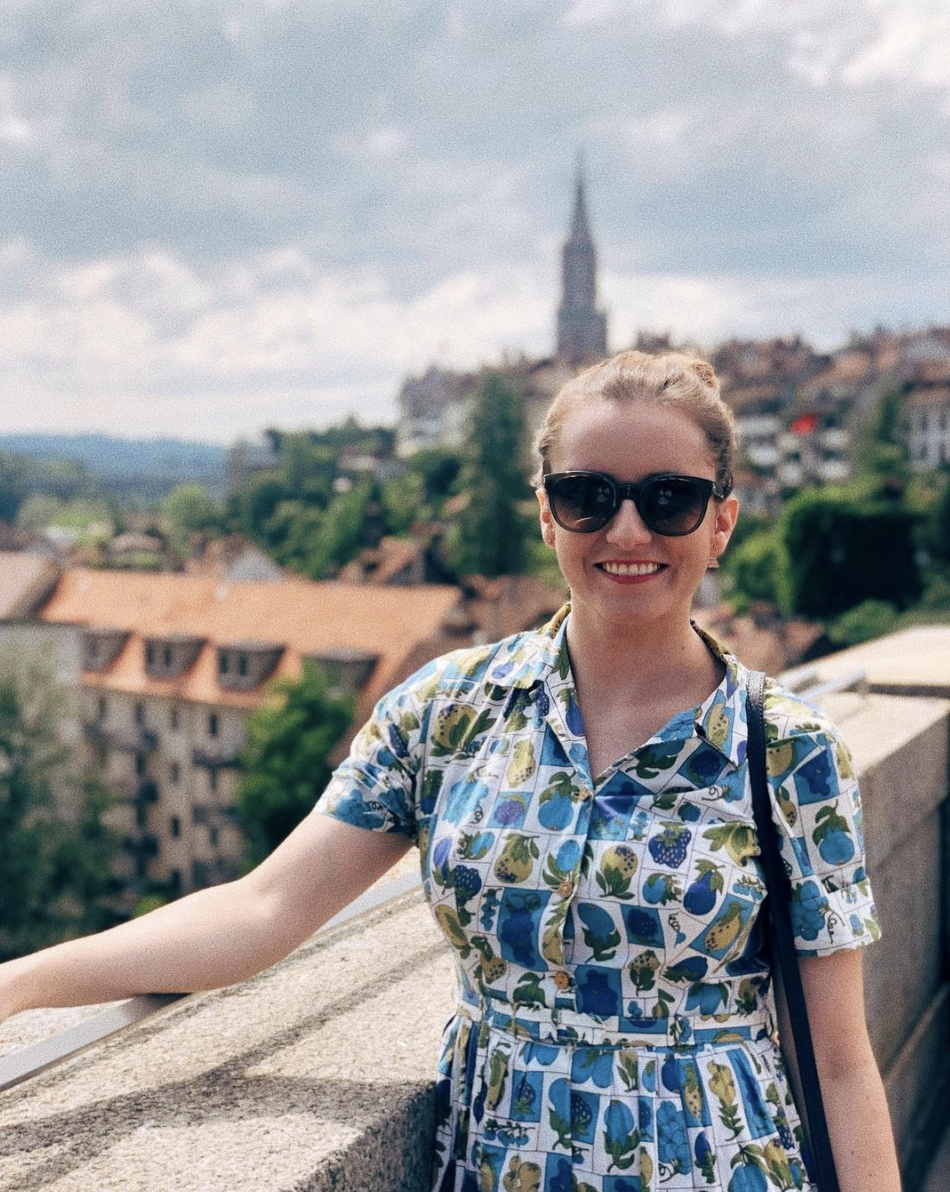11 Productive Things to Do When You Don't Feel Like Writing
/If you’re like me, there are some days—maybe even months—when you don’t feel like writing. And I get it. If you aren’t in the middle of a story you’re super passionate about or maybe have had a long week at work, it can be difficult to devote time to writing.
Of course, writing every day has its benefits. It helps you think about the craft more, subconsciously troubleshoot your story throughout the day after you’re done, and of course, helps you power through what could be a massive project! But sometimes when the words aren’t coming and you want to feel productive as a writer, you still have other options for working on your latest work-in-progress, without actually adding any words to the page.
Below I’ve listed my 11 favorite ways to be productive as a storyteller without actually writing! These tips and tricks will get you thinking about the craft and your story, oftentimes without you even realizing it, so you can feel productive even after a long day’s binge session on Netflix.
1. Read a book, watch a movie or TV show, or play a video game.
It shouldn’t surprise you that my first suggestion for what to do when you don’t feel like writing is to read, watch, or play someone else’s story. In the most simple sense, doing this allows you to still learn about storytelling without creating your own. Additionally, if you’re in a storytelling slump sometimes you may find that reading a book or watching a play can help you find the solution you story was looking for.
For example, I had recently spent several months away from my novel, but after starting to read A Tale for the Time Being by Ruth Ozeki, I realized my story wasn’t working because it was all from one perspective. I had been avoiding my novel for some time and wasn’t feeling all that jazzed about it, but then starting this book inspired me with the solution my story needed!
2. Participate in a live-action role-playing adventure.
Often as writers, we get so caught up in planning our story we forget to just go with the flow sometimes and let our instincts take the reins. A live-action role-playing game (LARP) can help you stretch yourself creatively and imagine yourself in roles you otherwise wouldn’t, including new characters and narratives to inspire future stories you tell. And whether you’re someone who is leading this role-playing game or a character in the story, you’ll get to exercise your craft without the pressure of getting things perfect right away.
If you’re lucky to have friends who are willing to play this with you regularly, I highly recommend setting a weekly or bi-weekly time you and your friends play a game like Dungeons and Dragons. This way you are forced to think of a big picture arc for one character, but also develop who they become in a way much like a novel.
For those who are new to LARP games, games like Monsterhearts or Fiasco offer single-night experiences much like D&D without the weeks (or months) of commitment, while still forcing you to improvise in the narrative.
3. Brainstorm story, character, and setting ideas.
When I was going through a storytelling lull this past April and couldn’t motivate myself to write anything at all, I made a commitment to myself that each day I would brainstorm one single story idea. It didn’t have to be anything I would write, I just had to think of one idea per day for a month straight, with no expectations that I’d write anything.
From there I was inspired to brainstorm 365 story ideas, and while I will never write all of those, the act of thinking about different story ideas without the commitment of having to write them inspired me and made me feel like I was working at my craft. (And guess what? I was!) After doing this I not only felt more confident about my innovation and creativity, but I also knew that I would literally never be short of ideas again. Someone could ask me for an idea in an elevator, and if I pitched it to them and they said that idea already had been done, I had a list of 364 other ideas I could suggest, and that felt good.
While I don’t think you need to brainstorm this many ideas, the exercise of brainstorming ideas unrelated to your work-in-progress may just lead to your next big project, or even a great new plot twist or character in your current one!
4. Discuss your work-in-progress with a friend or family member over coffee.
Just the act of talking about your work with someone can immediately reveal solutions to your biggest blocks in the story. Grab a friend who you feel comfortable spitballing ideas with—it can even be a fellow writer friend—and chat with them about your current work-in-progress.
Start by summarizing the story, explaining why you’re writing it, and then dive into any pain points you may have. You’ll often find that in just voicing what your story is and why you want to write it can start solving problems for you without doing anything else. Plus, if you haven’t been writing for awhile, it also sets you up with an accountability partner!
5. Set S.M.A.R.T. writing goals.
If you’re feeling unmotivated or uninspired, sometimes just sitting down and writing out actionable goals can help you feel excited about your writing life. Set S.M.A.R.T. goals to put you on track and give you something you can work towards.
Unlike goals which are ambiguous or abstract, you’ll avoid disappointing yourself down the road, and even when you’re doing something as small as writing 300 words per day or spending one hour a month editing old stories, you’ll feel productive and motivated to keep writing!
6. Make a list of potential scenes between different characters.
Whether you’ve written the first draft or the final draft of your story, half the battle is finding the best to organize and order your scenes, even in the most linear narratives! As a result, this can often mean cutting and adding scenes to find that perfect balance.
By spending time brainstorming different potential scenes with different characters, you become proactive and give yourself an arsenal of scenes to pull from and try out later on when you’re trying to find the best way to tell your story. Plus, even if you don’t use these scenes, it gives you a great chance to imagine how it might happen, which then subconsciously helps you piece through character development.
7. Outline the middle of your story in (more) detail.
Often what slows down even the most exciting stories is the middle, or the second act. In screenwriting, this is often called the Second Act Sag, when the story and writer lose momentum transitioning from the climax of the story to the resolution.
In addition to this, often as writers, we spend so much time thinking and perfecting the beginning of our story or envisioning the perfect ending, that often the middle of the narrative takes a backseat.
However, considering that the middle or second act of your story often makes up to 50% of your narrative, it’s really important to get this part right. If you have spare time, jot down a detailed outline of things like scenes, characters arcs, or even what lore is being revealed to help you really focus perfecting the center of your story. Even if it’s just a few extra minutes planning whenever you have free time, you’ll be glad you did it!
8. Make a list of your favorite words.
Words are likely what inspired you to be a writer or storyteller, even if you don’t predominantly write prose. To celebrate this, make a list of your favorite words or phrases, then brainstorm how you’ll use them in your upcoming work.
It may seem simple and perhaps even pointless, but this way even when the words won’t “flow” you have your favorite words to rely on and inspire you. Try using them in a passage or description, an action sequence, in exposition, or even have a character use them and make it their quirk!
9. Create a playlist for your story.
The greatest thing about creating a playlist for your story is that it exercises a different creative muscle, but takes your mind away from the storytelling medium and gives it a break. Plus, the playlist you make can serve many different purposes.
This can be a playlist to listen to as you write to help you stay focused or a playlist that goes with scenes, characters, settings—you name it—or it could be a mixture of both!
Not sure where to start? Think about what your favorite character listens to while they work out, go on a walk, or ride the metro, then make their mix CD. Or, imagine what playlist they’d make for a friend, then jot that down. Or, if you’re still struggling, think about what the sound of your novel or game is, then spend an hour or so assembling the perfect playlist until it “sounds” like your writing and the theme of the narrative.
10. Edit a friend or writing buddy’s story.
Doing something productive as a writer doesn’t always have to involve working with your own writing. Sometimes editing a friend’s work can be the best thing for your story!
This is because when you edit someone’s work, you spend a lot of time evaluating what you think is a good story, but even more importantly what you would do if you were the person writing this story. So, in the process of helping someone else improve their story, you’re also inherently forcing yourself to think about the craft and your unique storytelling voice as you do so.
11. Attend a writers’ meetup or conference.
As writer’s it’s way too easy to isolate ourselves, which in turn makes it really difficult to promote ourselves as well. This is what makes attending a writers’ conference so amazing. You get the chance to meet with like-minded people who are also struggling with their latest work and make a serious connection!
Of course, you shouldn’t spend the whole conference promoting yourself. Use this time to fine tune your craft in workshops and group discussions, but also to learn from others and what they do besides writing to feel creative! You’ll be surprised by how rejuvenated and inspired you feel just from hearing other writer friends talk about their experiences.
And while these aren’t the only things you can do to be a more productive writer (without writing!), I hope they inspire you all the same to work on your craft even when all you want to do is lie down and watch TV (which totally counts as one of these 11 productive things to do, by the way, so long as you’re learning from it). If anything, remember that as writers, everything we do is an opportunity to learn about storytelling, and the more you think about the craft that way, the better stories you will tell! Whether you pick up a new hobby that inspires a new character or travel to a new country that inspires your world building, so long as you’re alway observing, you’re writing.











